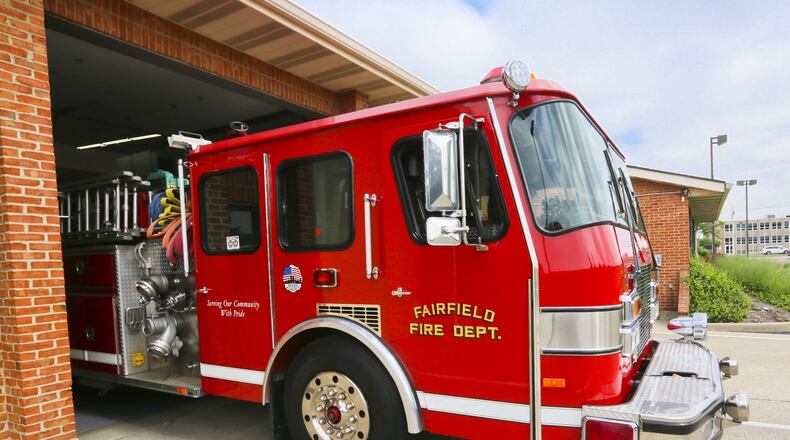The purchase of the $20,000 device from Stryker Emergency Care is possible through a donation from the Mercy Foundation. The city will buy a second device, and both will be stored on the city’s two advanced life support units.
FAIRFIELD NEWS: Hearing for sub accused of fondling himself continued until next week
“Unlike a human being that’s going to tire out, or have to be swapped out every so many cycles of CPR, this device doesn’t get tired (and) the battery will last for several hours,” Wagner said. “The other nice thing is we work the cardiac arrest in the field. We continue to work it where we’re at because we’re doing the same thing in the field they’re doing in the ER.”
The fire department was able to test two “loaner” devices for a few months, and medics used the LUCAS system 12 times.
Wagner said these types of devices have existed “in different configurations.” A similar device was used by the fire service in the 1970s, but a SCBA bottle, or an air tank, was used to power it.
“It was clunky, and a lot of extra stuff to carry, and now it’s literally configured in a backpack,” Wagner said. “You could have it on a patient in probably less than 10 to 15 seconds.”
The LUCAS system, which stands for Lund University Cardiac Assist System, has been available for about a dozen years and was invented in Sweden.
BUSINESS NEWS: Chicken wings, doughnuts featured in 2 coming Butler County restaurants
Wagner said the system could also be used on a patient when they are transported up or down a flight of stairs, or as they are loaded into an ambulance, acts that would force a medic to temporarily stop chest compressions.
Mercy Health-Fairfield Hospital saw more than 11,400 EMS arrivals to its emergency room, with 43 percent admitted to the hospital last year, according to data provided by the hospital. More than 1,000 of those arrivals experienced a cardiac arrest, and 123 cardiac arrest patients arrived at the emergency room with a medic actively giving chest compressions.
Shane Knisley, interim president of Mercy Health-Fairfield, said the LUCAS system helps free medics up to provide additional care to cardiac patients, and the better pre-hospital care provided, the patients will have better success.
“The more you can keep the blood flowing in the body during a cardiac event the better. It seemed like a no-brainer,” Knisely said.
The city will discuss the purchase of a second LUCAS system during its capital improvement program budget, which will be presented to City Council next month.
FACTS & FIGURES
Cardiac arrests at Mercy Health-Fairfield in 2018:
• 11,427 EMS arrivals, 43 percent were admitted to the hospital
• 1,080 of all EMS arrivals had experience a cardiac arrest
• 123 patients with cardiac arrest arrived with a medic actively performing chest compression
Source: Mercy Health-Fairfield Hospital
About the Author

